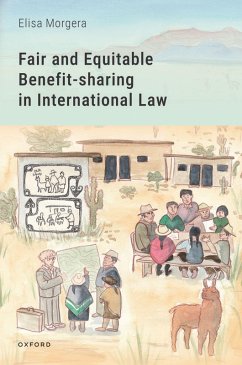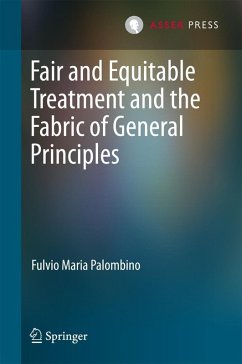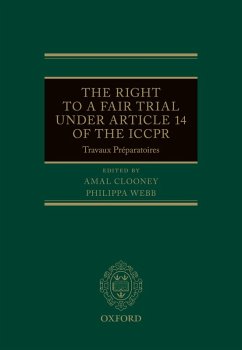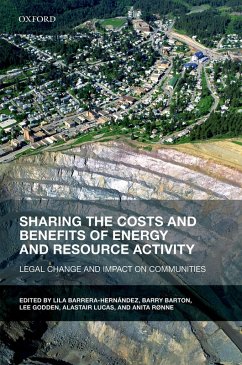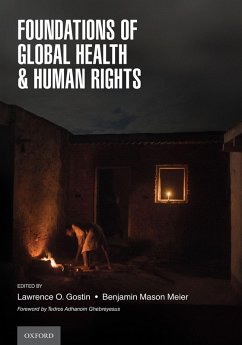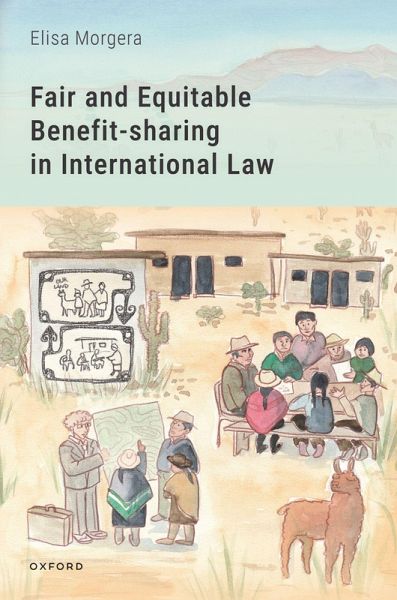
Fair and Equitable Benefit-sharing in International Law (eBook, PDF)

PAYBACK Punkte
0 °P sammeln!
Fair and equitable benefit-sharing is a diffuse legal phenomenon in international law. The continued proliferation of benefit-sharing clauses can be explained by their appeal as an optimistic frame in addressing sustainability and equity concerns related to bio-based innovation, the use of natural resources, environmental protection, and knowledge creation. In principle, fair and equitable benefit-sharing serves to recognize, encourage, and incentivise sustainable human relationships with the environment by focusing on equity issues arising from the most intractable challenges of our time, suc...
Fair and equitable benefit-sharing is a diffuse legal phenomenon in international law. The continued proliferation of benefit-sharing clauses can be explained by their appeal as an optimistic frame in addressing sustainability and equity concerns related to bio-based innovation, the use of natural resources, environmental protection, and knowledge creation. In principle, fair and equitable benefit-sharing serves to recognize, encourage, and incentivise sustainable human relationships with the environment by focusing on equity issues arising from the most intractable challenges of our time, such as loss of biodiversity, climate change, poverty, and global epidemics. Empirical evidence, however, indicates that, in practice, benefit-sharing rarely achieves its fairness and equity objectives, and ends up entrenching or worsening inequitable relationships with little to no benefit for the environment. Instead of focusing on fair and equitable benefit-sharing in sub-specialist areas of international law in isolation, Elisa Morgera assesses the phenomenon from a general international law perspective and through comparison-across international environmental law, international human rights law, international health law, and the law of the sea. Strengthened by insights from local-level case studies in different regions and sectors, this book looks toward overcoming the limitations inherent in individual international regimes and addressing the shortcomings in benefit-sharing implementation. Morgera's topical and comprehensive analysis reveals opportunities to advance fairness and equity in benefit-sharing through a mutually supportive interpretation of international biodiversity law and international human rights law, as well as opportunities to contribute to future research in areas such as international health law, international law on outer space, and international economic law. This is an open access title. It is made available under a Creative Commons Attribution-Non Commercial-No Derivatives 4.0 International licence. It is available to read and download as a PDF version on the Oxford Academic platform.
Dieser Download kann aus rechtlichen Gründen nur mit Rechnungsadresse in A, B, BG, CY, CZ, D, DK, EW, E, FIN, F, GR, HR, H, IRL, I, LT, L, LR, M, NL, PL, P, R, S, SLO, SK ausgeliefert werden.




